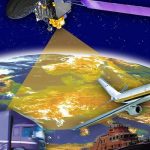It has also just reached a new milestone in the Galileo programme with the integration of a new satellite into Galileos Ground Mission Segment.

Thales Alenia Space has signed a new contract with the EU Agency for the Space Programme (EUSPA) to develop, qualify and deploy the new European Geostationary Navigation Overlay Service (EGNOS) version.
Thales Alenia Space has also just reached a new milestone in the Galileo programme with the integration of a new satellite into Galileos Ground Mission Segment (GMS) which will improve positioning service for 3.3bn users.
The EGNOS system improves positioning accuracy, reliability and integrity by enhancing the performance of global navigation satellite systems (GNSS) such as GPS and, in the future, Galileo. The main service provided by EGNOS today is to support civil aviation operations for specific GNSS approaches. The EGNOS Safety of Life service launched in 2011 has thus made the aviation sector safer and more efficient for European operators. In addition to increased safety, it has made airports more accessible and is helping to reduce aviation’s environmental footprint.
Thales Alenia Space will provide EUSPA and the EU Navigation community with a new version of EGNOS (V243), whose operations will be secured by a new state-of-the-art Navigation Land Earth Station technology developed by Thales Alenia Space NLES-G3. The NLES transmits the EGNOS message containing all accuracy & integrity corrections to the Geostationary satellites for broadcast to users as aviation operators. Thales Alenia Space NLES-G3 will be integrated with a new geostationary satellite GEO3 which will enhance the EGNOS system and its end-to-end performance.
Certification and commissioning of this latest version is slated for 2024.
Thales Alenia Space, prime contractor for Galileo First Generations Ground Mission Segment, achieved a new milestone as the Galileo constellation is approaching the last steps before its completion with the launch of GSAT0223 satellite, which has increased the operational constellation to 23 satellites for Positioning and 25 for the Search And Rescue.
This new satellite has successfully been positioned in orbit and its payload signals are inserted in the Ground Mission Segment (GMS) operational chain of Galileo.
Speaking about the development, Benoit Broudy Vice President, Navigation Business at Thales Alenia Space, said: “This new Galileo milestone demonstrates that Thales Alenia Space is successfully completing the ground segment which will improve Galileo’s position by integrating a new satellite. We are also delighted to have been selected to develop this new EGNOS version and to introduce a next generation of uplink Navigation Land Earth Station (NLES). At Thales Alenia Space, we are preparing for the future and we are committed to innovate and continuously develop new solutions for our satellite-based augmentation systems (SBAS) customers and Galileo users around the world.”













































































